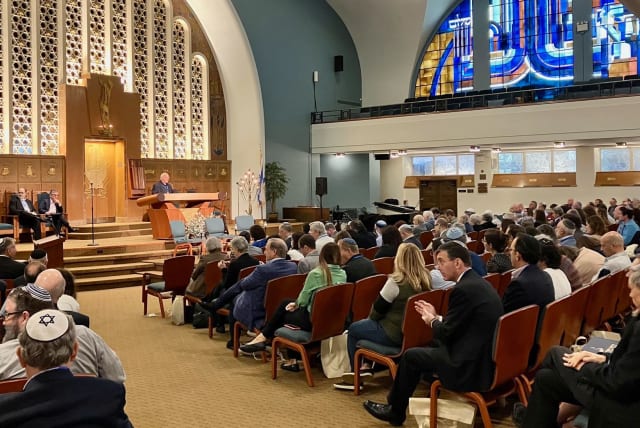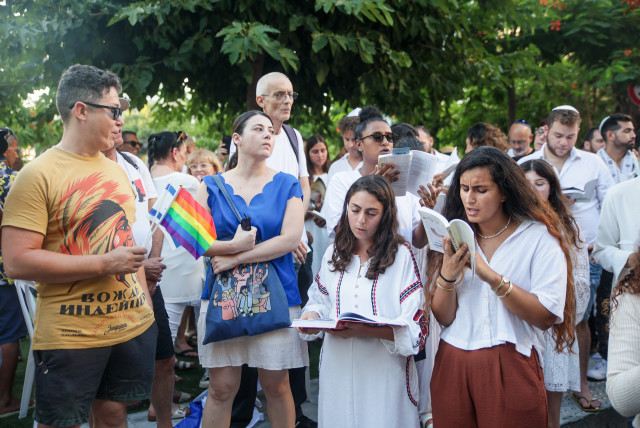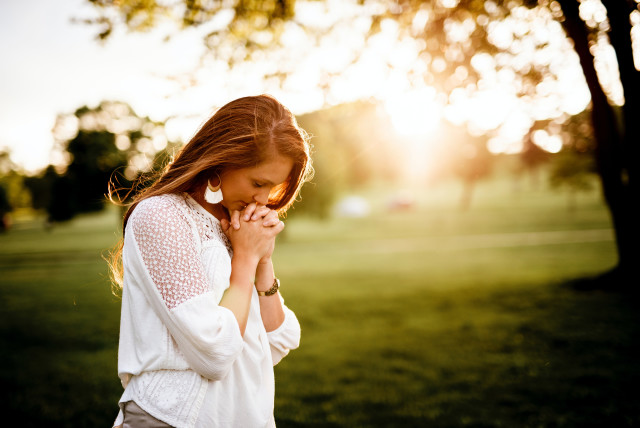Awakening the secular soul: Reconnecting with Jewish heritage

As Yom Kippur concluded in Tel Aviv, it's imperative to contemplate the emotions that engulfed the demonstration—emotions that ranged from frustration to anger and even hatred.
In the heart of Tel Aviv, on the holiest day of the Jewish calendar, Yom Kippur, a conflict erupted, shedding light on a profound struggle within Israeli society. As worshippers gathered to observe this solemn day of atonement, attempts to enforce gender segregation ignited outrage and protests, eventually leading to violence in Dizengoff Square. Amidst the chaos, a video captured a young girl asking her apparently nonreligious father a poignant question: "Dad, why are they shouting 'shame' to the shofar?"
This innocent inquiry mirrors the complexities of the situation. As Yom Kippur concluded in Tel Aviv, it's imperative to contemplate the emotions that engulfed the demonstration—emotions that ranged from frustration to anger and even hatred.
Beyond the clashes over gender segregation, there were instances where Jews labeled their fellow Jews on the other side of the square as "Nazis." Such animosity within the Jewish community serves as a stark reminder of the deep divisions that have taken root.
A recent survey published by the Makor Rishon newspaper on the eve of Rosh Hashanah revealed a stark reality: 49 percent of secular individuals have distanced themselves from the ultra-orthodox community, and one-third of them have also distanced themselves from both religious Zionism and Judaism. This situation reflects a coalition predominantly composed of Sabbath-observers, yet it bears the banner of a faltering Jewish identity in a place that seemingly possesses all the necessary tools for success – the means to bridge the gap between Judaism and the broader public and foster a sense of love for it.

This data underscores the urgency of secular Israelis rediscovering their connection with Judaism. It's not a matter of rejecting their heritage but rather embracing it on their terms. The events in Dizengoff Square, with all their animosity and hate, serve as a stark reminder of the polarization within Israeli society, where differing views on religion and identity often lead to division.
A recent survey conducted by the Tzohar rabbinical organization revealed that 22% of Israelis believe that the past Hebrew year has driven them further away from their Jewish faith, yet 24% indicated that they have come closer to their Jewish faith as well. Interestingly, 70% of secular Yesh Atid Party voters don't believe in God, as opposed to 40% of secular Likud voters. This data exemplifies that those secular Israelis opposing the government have less of a spiritual-religious connection than those secular Israelis who support it.
Dr. Omer Dostri, a researcher for the Israel Defense And Security Forum (IDSF), wrote an op-ed in Makor Rishon, claiming that “It appears that in Tel Aviv, there is hardly a trace left of the deep-rooted and fundamental Jewish traditions within the public sphere. Furthermore, it seems that some individuals in this city have lost touch with their Jewish identity.”
Dostri added that “this goes beyond mere ignorance and a lack of understanding of matters related to Judaism and Israeli traditions; it extends to the core principles of Jewish conduct and values. Even when there are differing opinions, and even if we don't see eye to eye on certain issues, it is not acceptable to treat others the way that particular group did – with rudeness, brusqueness, impatience, and aggression.”
The right to practice Judaism in a way that works for each individual
On the other side, there are secular Tel Avivian Jews who actually want to practice Judaism in their own unique way. “We are Tel Avivians, characterized by our secular and liberal values,” wrote Amir Ben David, a journalist, and screenwriter in the Zman news site after Yom Kippur.
“While we don't strictly follow religious mitzvot, we cherish a profound mental and emotional bond with the Jewish tradition in which we were raised. This connection is deeply intertwined with our familial and historical roots, granting us the freedom to embrace elements of the tradition on our terms, without seeking approval from anyone, not even Benjamin Netanyahu. What was once considered a given and unremarkable stance has recently transformed into a principled commitment that we are determined to protect.”
Ben David concluded his very emotional and thoughtful column with a beautiful monologue: “Our Judaism resides just beyond the horizon, on the far side of the square. It takes on a myriad of forms and shines in a multitude of hues. It's a source of creativity and humor, intimately tied to a broader world, and dedicated to the pursuit of a brighter future. It embodies freedom, a liberation in its own right.
In this context, the words of N12 journalist Yair Cherki, an orthodox Israeli Jew, resonate profoundly: "I grasp the apprehension - both from those who fear the encroachment of a Halacha state on their cherished liberal sphere and those who perceive religion as being under siege in Israel in 2023. It's from this vantage point that I acknowledge the deep concerns of many. As we near the end of Yom Kippur, it's crucial that we reflect; if we fail to do so, challenging days may lie ahead."
In the aftermath of the Yom Kippur incident in Tel Aviv, it is clear that the divisions within Israeli society are deeper than ever. The clash over gender segregation on a sacred day brought to the forefront the tensions not only between religious and secular Israelis but also within the secular community itself. This incident emphasizes the urgent need for secular Israelis to reconnect with their Jewish heritage on their terms. The polarization within Israeli society, driven by differing views on religion and identity, threatens to further divide the nation.
As seen in the survey data, there is a significant disconnect between secular Israelis and Judaism, with a substantial portion distancing themselves from traditional Jewish practices. However, a quarter of respondents have come closer to their Jewish faith, suggesting a potential path for reconnection despite the prevailing secularism.

Ben David's perspective represents a growing movement among secular Tel Avivian Jews who want to practice Judaism in a way that aligns with their secular and liberal values. This commitment to a personalized form of Judaism, free from external influence, reflects an evolving Jewish identity in Israel.
Interestingly, Tel Aviv’s first mayor Meir Dizengoff touched upon this topic in a magnificent way in 1933, "This is not a purely religious question, but a public and national question,” Dizengoff said of the issue of Shabbat in the public sphere. "It is forbidden to desecrate Shabbat in persuasion. Every person has a tradition of views, beliefs, and customs, which protects it. This is the character of a people, which gives it existence. Woe to an individual or a group that separates from its people, and we must guard against blasphemy of Shabbat by not placing ourselves outside the camp.”
